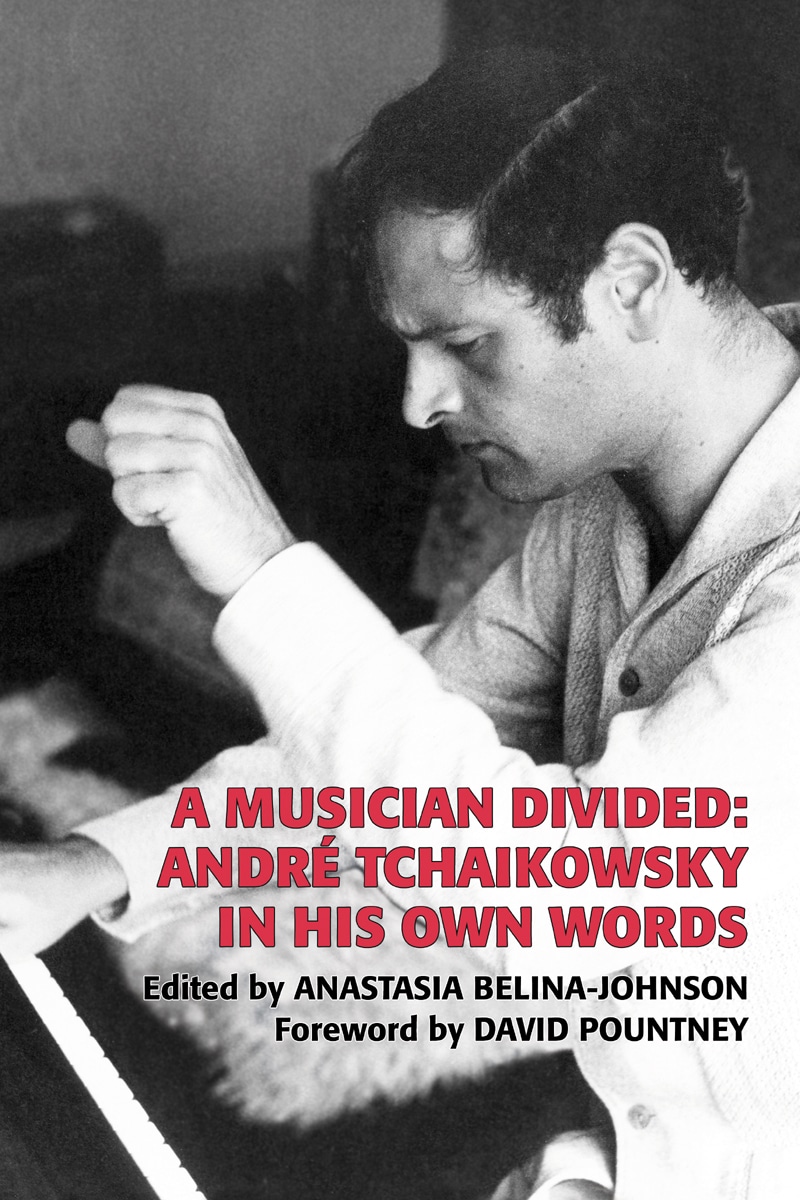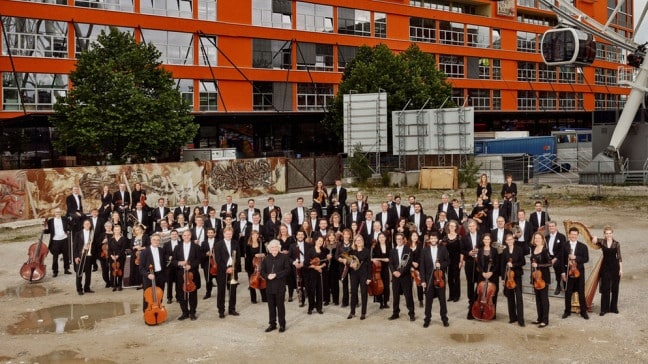Start the year with the least-known Tchaikovsky
mainMy first 2014 album of the week on Sinfinimusic is a piano concerto by Tchaikovsky. Not Piotr Ilyich. Nor Boris Tchaikovsky, the Soviet-era stand-in. This one’s André Tchaikovsky, and I find his music enthralling. So good, in fact, I don’t care what his real name is.
Read the review here. The composer’s equally intriguing diaries are coming out this month from Toccata.






When I was a teenager I heard him perform and liked him a lot. His recordings proved difficult to find…. a Goldberg. some Chopin Mazurkas, I know a Mozart concerto with Reiner exists but I have not been able to locate it. Andre Tchaikovsky adored Shakespeare and wished to write an opera on Hamlet. When he died, he donated his skull to the RSC to be used as Yorick. I believe David Tennant was the first to use it. Another musician who wanted to give more but death didn’t let him. Sad story. An early end after an extremely tragic beginning.
André Tchaikowsky LP recordings show up all the time on ebay.com and of his 9 LP recordings, 8 of them have been released as CDs one way or another. All the music, at least, is on the andretchaikowsky.com website under the Recordings link.
I attended a magnificent performance of the Prokofiev 2nd Concerto with Reiner and the CSO. An absolutely brilliant collaboration which RCA chose not to record. The Mozart is OK, but not distinctive; I’ve never heard their Bach. Andre was, however, beyond eccentric (as he aged).
At one point, he decided Roman Totenberg was his birth father (so the violinist told me). Apparently it was possible to prove that Totenberg and Tchaikovsky’s mother had been on different continents at the probable point of conception . . . .
James, a lovely recollection. How I would have loved to hear his Prokofiev 2. The Bach Concerto No. 5, recorded at the same time as the Mozart, is available on CD and on the andretchaikowsky.com website. The Roman Totenberg story is absolutely correct and Roman told me this as well when I visited him Blue Hill, ME. When Andre was conceived in Paris, Roman was living in Berlin, much to Andre’s disappointment!
Reiner embraced him at the end of the performance (I was at the Friday matinee repeat).
I look forward to purchasing the piano concerto . . . and strongly endorse the correspondent who reminded us of the Toch Cello Concerto and so much more little known music of that era!
The first half of the 20th century saw a wide range of different types of (serious, classical) music, a wild freedom but most of it still based, instinctively, upon general norms of musicality as developed in the 18th and 19th century, but now without any dogma – except the Schoenberg circle who formed merely a small brook in this broad delta. Then came the thirties with the emigration of many musicians from Europe to the UK and the Americas, where many of them were rather displaced, many of them being Jewish and culturally part of typical European traditions. After WW II a linear, quasi-progressive music history developed which selected the Schoenberg group from the rich musical palette of prewar music as being one of the two (sic) ‘really relevant’ and ‘important’ movements, the other being ‘neo-classicism’. And all music which did not nicely fit into one of these two categories fell besides the road, irrelevant of quality or/and success in music life. (For instance, the German composer Walter Braunfels, a very gifted composer who had hughe successes with his operas in the twenties, was first banned and then after WW II completely forgotten because he wrote in a post-Straussian style which was deemed ‘irrelevant’ to the New Brave World; recently, his opera ‘The Birds’ has been rediscovered and produced with great success.) Pioneering orchestras like the Kammersymphonie Berlin, and organizations like Exil Arte in Vienna and the Leo Smit Foundation in Amsterdam, are exploring this rich treasure trove, and often real gems are brought to light which enrich the repertoire.
Interestingly, there are nowadays composers who want to reconnect with that prewar period, and find ways of liberation from modernist narrow-mindedness, finding real musicality and possibilities of further development within the context of a living, but interrupted tradition: David Matthews, Nicolas Bacri, James Francis Brown, Alexander Smelkov and others. The better contemporary music nowadays is, the more it sounds like prewar music and I think this is a positive development.
Andre was a dear friend and a very much admired and respected colleague! I have wonderful memories of Uri Segal and I performing the concerto in Copenhagen, at the Tivoli in 1986 – with you, Dave Ferre, as a superb page-turner! What a powerful work the Concerto is…….and I’m delighted it’s being performed again. His Inventions, some of which I premiered at the Queen Elizabeth Hall and recorded for the BBC are also remarkably worthwhile. Let’s hope the success, last summer, of his opera the Merchant of Venice, will bring this extraordinary artists name back to our attention!
When, at some stage in the future, the music history of the 20th century is written again on the basis of musical qualities, many more gifted composers will be dug-up that we may not have heard about. Not long ago I heard a shockingly beautiful and strong cello concerto by Ernst Toch…. from the twenties, rediscoverd by the Kammersymphonie Berlin, the well-known German chamber orchestra that combines historical research with brilliant CD productions.
That is quite possible. Art lives on hope.
It was in August 1970 when we met André Tchaikowski at Dartington, where he was during the summer course a much loved and admired piano teacher. He was 35 years and among the students was the now famous pianist András Schiff in the gentle age of almost 17! I still have the lively pictures of them both, as well as the correspondence in Tchaikowski’s beautiful handwriting between him and my late husband. And, of course, the favourite subjet always was: Composing.
Dearly loved memories of a unique person.
How lovely to read your André recollection from Dartington. You are correct about his handwriting, which was always perfect and in any language. Judy Arnold commented that if “…André came into this room for 2 minutes, you would remember those 2 minutes the rest of your life.” I saw André in a concerto concert in 1978 with David Zinman and while I don’t remember his playing, I surely remember him. As the webmaster for the André Tchaikowsky website, if the “pictures” you mention are photographs, I would be interested in corresponding with you.
Yes, the two pictures are photographs; one black/white and one in colour. Of course I am willing as well as glad to share them with you and allow Mr. Lebrecht to give you my e-mail address which is in The Netherlands. Don’t know if this ‘burden’ for Mr. Lebrecht will work. If not, I will find you on the internet on the subject of André Tchaikowsky’s website, Mr. Ferre.
Wonderful news. On the http://andretchaikowsky.com website, there is a contact link, which you may use to write to me. Many thanks. Dave